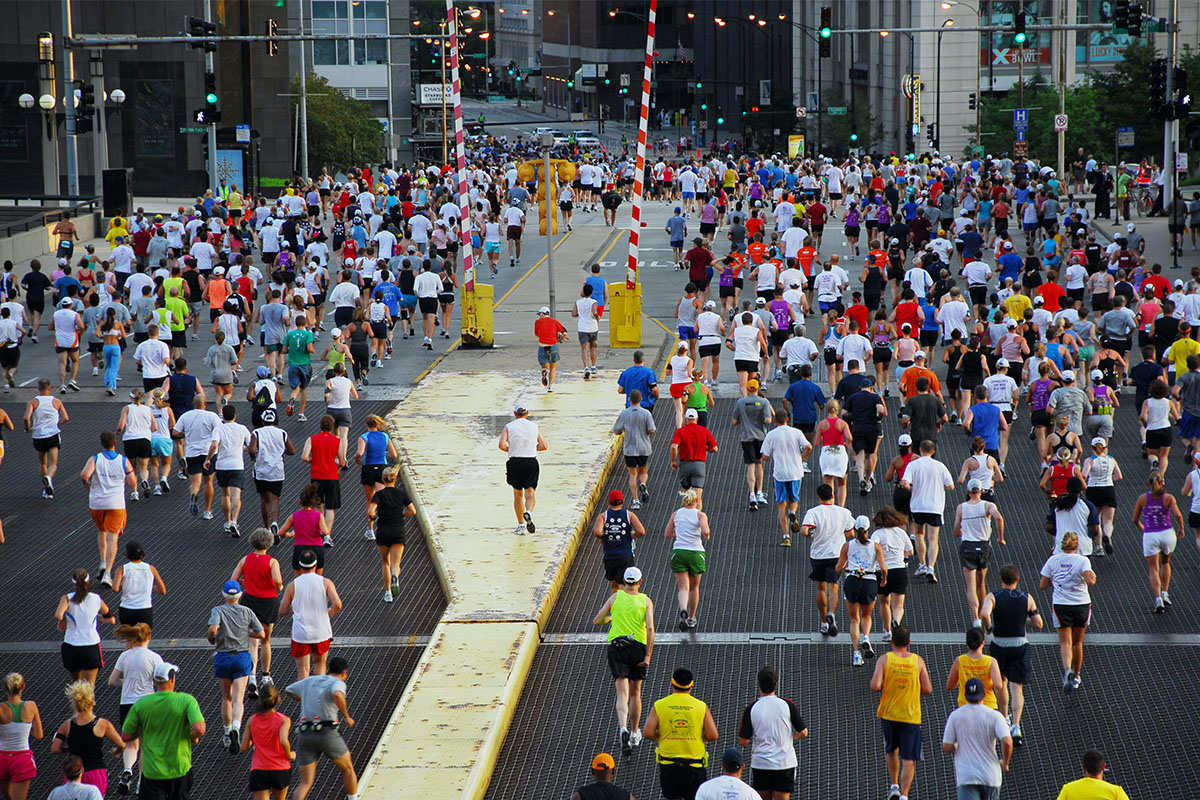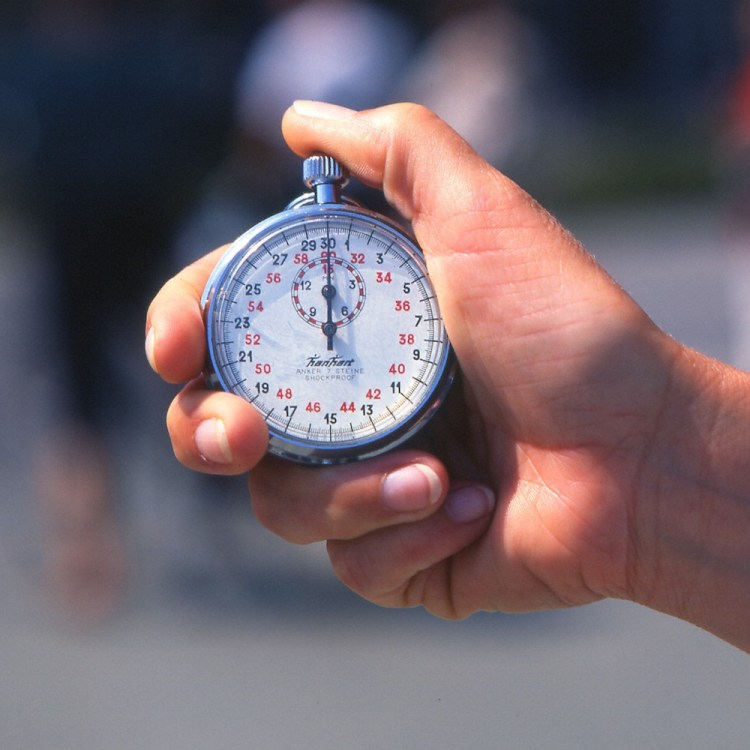Rainier Crawford is yet to learn his multiplication tables or read a chapter book, but he’s already run a marathon.
The six-year-old from Bellevue, Kentucky finished the Flying Pig Marathon last weekend, a race founded in 1999 that typically draws over 5,000 participants, and the internet is in understandable uproar. Why on earth was a second grader allowed to run 26.2 miles?
Well, he obviously didn’t sign himself up. Crawford hails from the 2022 version of a traveling family band: his mom, dad, brother and four sisters are all fitness influencers, operating under the Instagram handle @fightfortogether. They have a YouTube channel, a podcast and, of course, an online store where they sell trucker hats that read “Compliance Kills” and shirts that say “Safety Second.”
Entering their second grade-aged son into a marathon, which took him over eight hours to finish, was a pretty predictable stunt for a family that has been posting videos titled “6 YEAR OLD Attempts HALF MARATHON (incredible)” and “6 Year old runs 6 miles NO PROBLEM” for months now.
Kami and Ben Crawford, Rainier’s parents, appear unabashedly intent on chasing clout — last year the entire family walked the entire length of the Appalachian Trail (and then wrote a book about it, which is available on Amazon), and after this gambit, the family appeared on Good Morning America. As criticisms have mounted over the last few days regarding Rainier’s run, the Crawford parents have leaned into their social media infamy, even posting a 25-minute video to address the controversy.
The short of it is Rainier should never have been allowed to run this race. Like most marathons throughout the United States, the minimum age requirement to run Flying Pig is 18. (Some will drop it to 16, while two marathons — Honolulu and Houston — bizarrely allow seven-plus and 12-plus, respectively.) After the race, the race director released an official statement on why he permitted Rainier to run, which included: “This decision was not made lightly. The father was determined to do the race with his young child regardless. They had done it as bandits, in prior years, before we had any knowledge of it and we knew he was likely to do so again.”
In other words, this family tends to do whatever it wants…then post about it online. Now the late-workweek Twitter mob, always desperate for something to get angry about, has really latched on to the story, and some people have gone so far as to post Child Support helplines on some of the posts the Crawfords have put up. All told, it’s a mess.
But this truly was a bad idea. Look at how small Rainier is. We can put aside the conflicting reports of whether Rainier was crying throughout the race — though his dad himself confirmed that he bribed him at a difficult mile 20 with the promise of two sleeves of Pringles after the race — and zero in on the torturous physiology of a body that tiny running a race that long. His bones aren’t fully formed, which leaves them highly susceptible to a repetitive use injury. His aerobic capacity isn’t fully developed, either, which makes a marathon especially painful for his lungs.
That’s to say nothing of the training required to run a marathon. There isn’t a right answer here. Either Rainier properly trained for his first marathon (a conventional program takes between 12 and 16 weeks), which is unfathomable; how many hours a day, when he could’ve been doing normal six-year-old activities was he out on grueling 20-mile runs? And if he didn’t properly train, having him compete on marathon day is grossly negligent and dangerous.
Obviously, children running marathons isn’t a scourge sweeping across the country right now. This boils down to a very specific family, courting a very specific sort of fame. (It’s working, by the way.) But the story offers some important reflections on the intersections of parenting, social media and the autonomy of children. In the town hall that the Crawford parents posted the other day, they teased at an upcoming documentary, which Ben referred to as his “passion project.”
Great. What’s Rainier’s passion, though? Is it running? Maybe. Frankly, it’s remarkable that he actually pulled this off — it calls to mind the origin stories of some of the some highly-skilled professional athletes, who remember being pushed past their physical limits by extremely ambitious parents. (Look to Wright Thompson’s iconic piece on the childhood of Ichiro Suzuki for more insight there.) While that early “encouragement” can lead to lifelong success, there are no guarantees — and that’s especially true in a sport like running, where you can screw up your knees and never recover. Plus, in the end, these crusades are almost always about the insecurities of the parents, and less about the hopes of the child.
American kids definitely need to move more. They need to be open to more challenges, too, as argued by a fascinating movement that calls for “risky play.” But they don’t need to be running marathons. If Rainier has an uncommon penchant for long-distance running, put him in the 5K. I’ll never forget the thrill of my first 3.1, which I ran at the age of eight. It was different, it was exhilarating and it was over in about thirty minutes…not eight hours and thirty minutes.
The Charge will help you move better, think clearer and stay in the game longer. Subscribe to our wellness newsletter today.


















